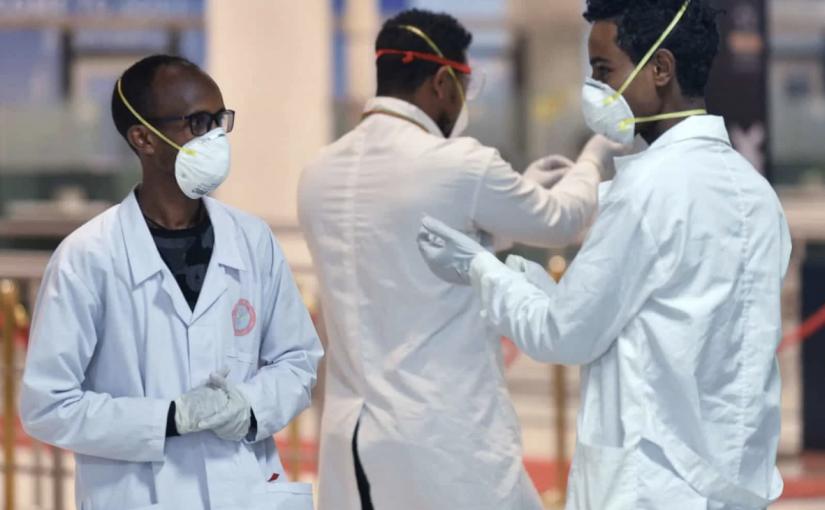Mozambique: Three police officers suspended following road accident
Province of Zambézia has only 16 Mozambican specialist doctors

FILE - Doctors in Quelimane, 2021. [File photo: RM]
With over six million inhabitants, the province of Zambézia has only 16 Mozambican specialist doctors.
The number is considered insufficient to meet the demand in the country’s second most populous province, grappling with various health problems. The medical profession also insists that there is a delay in the payment of overtime hours.
The population increasingly lacks specialized services in various areas, but there are few options regarding the problems faced due to the lack of specialist doctors. The Mozambican Medical Order and Association are concerned about the issue of not hiring specialized doctors in the country.
The concern was raised at a gala dinner held in Zambézia on Saturday, marking Mozambican Doctor’s Day.
Zambézia has 249 doctors distributed in 284 health facilities. Mozambican specialist doctors are only 16, which does not satisfy the population.
“And these are the doctors who are indicated to meet the needs of our population (…). Does the province of Zambézia deserve only 16 specialist doctors, Madam Secretary of State?” questioned Denise Chatima, while reading the doctors’ message.
The president of the Mozambican Medical Association, Napoleão Viola, recalled that the country is considered by the World Health Organization (WHO) to be in a state of emergency regarding health personnel, hence the need to hire more specialist doctors.
Napoleão Viola stated that doctors in the province of Zambézia have a greater workload to respond to the population’s demand for health services.
“However, we have seen that, despite great difficulties,” doctors “have been able to find solutions with all possible instances in the National Health Service and the Government,” said Napoleão Viola, adding that challenges persist, including the placement of more specialists in the provinces.
For this year, the hiring of fewer than 30 doctors is expected nationwide, at a time when “we are training more than 300 doctors per year. This means that there is a gap, meaning that the State is not managing to place these doctors in service to Mozambicans,” emphasized the president of the Mozambican Medical Association.
The delay in the payment of overtime hours continues to worry the medical profession, according to Viola.
“We are still hurt by the situation of payment for overtime hours. It causes us some commotion that some colleagues are currently without salaries but are working. We deeply regret it, and I don’t know if it’s exclusive to the province of Zambézia, but I have information” that the delay in payment “occurs in various parts of the country.”
According to Viola, there are doctors who have been classified as health technicians who are not yet classified in the proper scales and, despite being medical graduates, receive salaries equivalent to those in other “common” areas.
The situation, according to the Mozambican Medical Association, may stem from the fact that career changes and other administrative acts are “stalled until 2026,” which “causes us some perplexity. But, evidently, it is a situation that we must be able to reflect on and try to find solutions.”
On the other hand, the Dean of the Mozambican Medical Association, Gilberto Manhiça, criticized doctors who, seeing citizens in distress in need of medical assistance, illegally charge money and tarnish other honest professionals.
In this regard, Manhiça advocated for respect and dignity, something that is intended and that involves improving working conditions for doctors.
“This improvement in working conditions for doctors is a national imperative because the lack of resources not only harms the patient but also the integrity of the professional. This is how the doctor, the healthcare professional, is labeled as incapable, incompetent, and without intellectual informative ability to solve health problems, while they are not. Therefore, we demand that conditions of work be created for us,” stated the Dean.
In response, the Secretary of State in Zambézia, Cristina Mafumo, reassured the doctors, stating that the Government’s Five-Year Program includes the need to hire more qualified human resources for the health sector.
It is worth noting that the province of Zambézia is struggling with a lack of dialysis, radiotherapy, oncology, among other services.













Leave a Reply
Be the First to Comment!
You must be logged in to post a comment.
You must be logged in to post a comment.